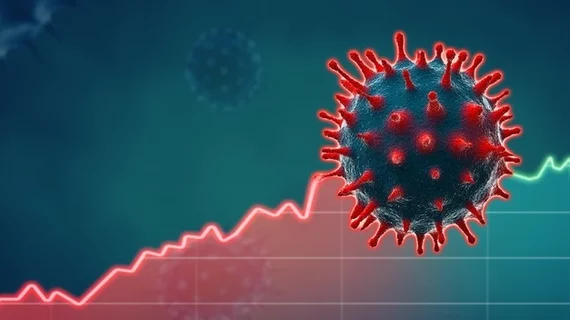Slow heart rates reported in COVID-19 patients treated with lopinavir, ritonavir
Treating critically ill COVID-19 patients with a combination of lopinavir (LPV) and ritonavir (RTV) is associated with a significant risk of bradycardia, according to new research out of France.
The study, published in Circulation: Arrhythmia and Electrophysiology, focused on 41 COVID-19 patients who received LPV/RTV treatment at a single facility in the early stages of the pandemic.
“At the start of the COVID-19 outbreak in Europe, specific anti-viral treatments were based on previous experience with SARS-CoV-1 and MERS-CoV and on early experience with SARS CoV-2 in China,” wrote lead author Christophe Beyls, MD, Amiens University Hospital in France, and colleagues. “One of the promising treatment was the combination of LPV and RTV, previously used for the treatment of SARS-CoV-1 and MERS-CoV infections.
Nine (22%) of the patients the authors treated with LPV and RTV experienced bradycardia, which they defined as a heart rate slower than 60 bpm for a period of more than 24 hours. The bradycardia “resolved after discontinuation or dose reduction” of the LPV/RTV treatment.
Beyls et al. did point to another study assessing the use of LPV and RTV as a COVID-19 treatment. The authors of work, published in the New England Journal of Medicine in May 2020, did not observe any cases of bradycardia, but the patients they examined “were less severe” and considerably younger.
“Moreover, the majority of their patients did not have continuous heart rate monitoring during hospitalization and no data on LPV/RTV plasmatic levels were reported,” the authors wrote.
The full Circulation: Arrhythmia and Electrophysiology analysis is available here.

